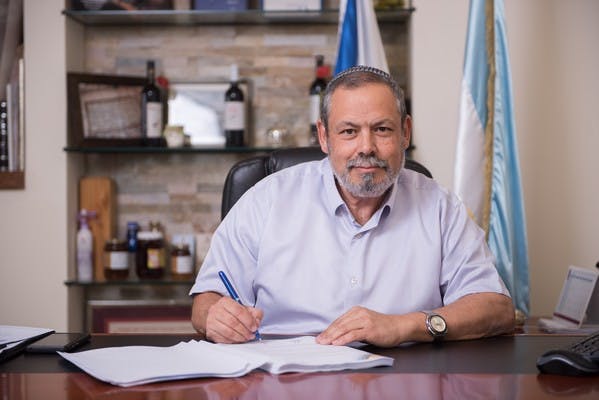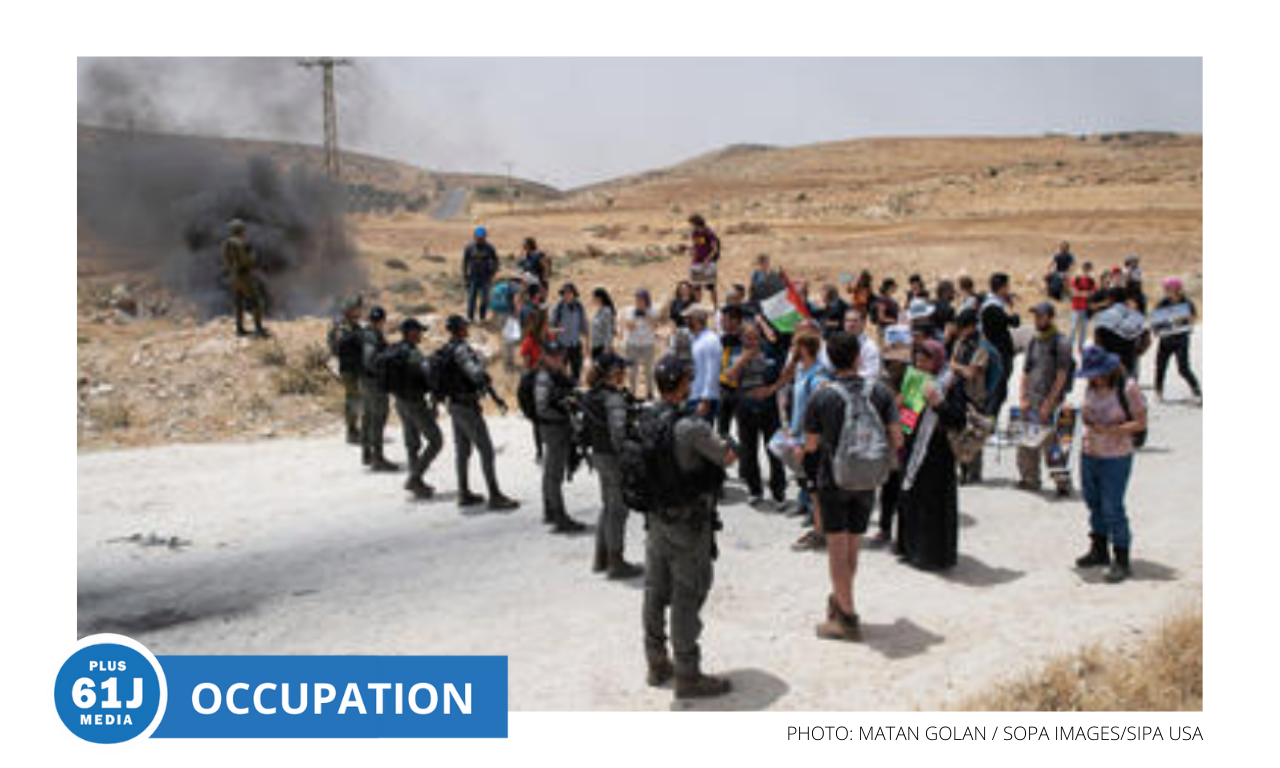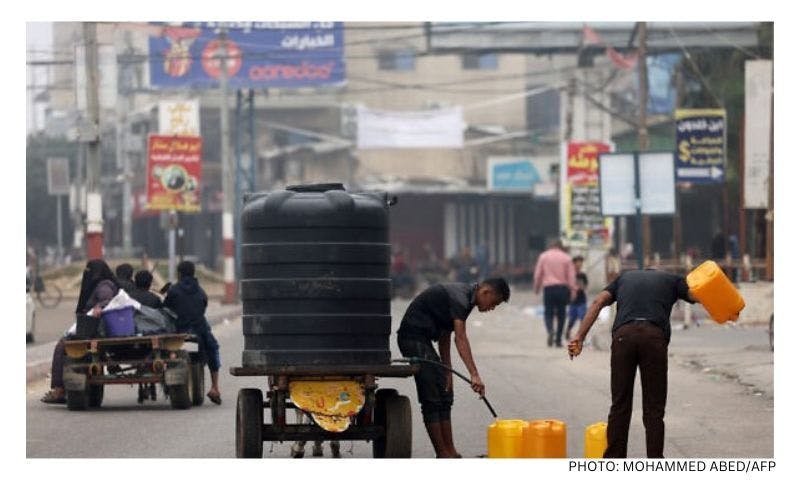Published: 20 May 2022
Last updated: 4 March 2024
BEN LYNFIELD visits the villages south of Hebron where the Supreme Court has approved the eviction of 1200 Palestinians to repurpose their land as a military firing range
AL-FAKHIT, OCCUPIED WEST BANK--What settler violence and army pressure failed to accomplish in recent years, the Israeli Supreme Court is now enabling: forcible eviction of some 1200 Palestinian men, women and children from eight herding villages in the south Hebron hills.
The decision to dismiss appeals against their expulsion could pave the way for other army and state ordered evictions of Palestinians in the West Bank, according to human rights lawyer Neta Amar. "This opens the door for a completely different framework for moving people around," she told The Jewish Independent.
Taken after rights groups waged a 20-year legal battle to keep the Palestinians on land declared by the army as a firing zone, the court ruling spread fear and dread throughout Masafer Yata, the Arabic name for the hilly, parched area of impoverished herding hamlets in the south Hebron hills of the occupied West Bank.
"If the Jews want more land, it should not be on the back of the Palestinians," said Mohammed Hamamreh of the Mufaqara hamlet to The Jewish Independent. His four-year-old grandson Mohammed was struck in the head by a rock thrown by a settler during a September rampage. He was wounded in the arm himself, as four other Palestinians were hurt and property destroyed.
Israeli military administrators did not answer a query by The Jewish Independent on whether expulsion would ensue in the aftermath of the decision. Roni Pelli, a lawyer for the Association for Civil Rights in Israel, who argued on behalf of the villagers, told The Jewish Independent the army "has no limitations on it" and can expel the Palestinians at any time.
It would be the biggest eviction of Palestinians since the occupation of the West Bank began in 1967, according to Dror Sadot, spokeswoman for human rights group B'tselem. The ruling "sets a very dangerous precedent," Pelli says, because it specifies that military orders or Israeli legislation transcends the protections of international humanitarian law.
Leading Israeli West Bank expert Dror Etkes, told The Jewish Independent that, based on past experience in other firing zones, much of the land where the Palestinians farm and graze their livestock would be transferred to settler use.
Hamamreh lives in a structure outside a cave and ekes out a living from his flock of 150 sheep and some hard scrabble farming. Life was cruel even before the verdict. Every structure in Mufaqara has a demolition order against it.
Hamamreh stressed that he was born in Mufaqara before Israel arrived on the scene - as were his father and grandfather. Before that the family came from nearby Tuwani village.
The three-judge panel was unmoved by such considerations, ruling that the villagers failed to prove they were anything more than seasonal itinerants before the army declared the firing zone in 1981.
Hamamreh and other villagers consider the Israeli justices and army "liars".
Hamamreh points to the northern Negev in Israel proper. Don't they have enough land there?
As a four-wheel drive vehicle took him and this correspondent on a nearly impassable road through the hills to an emergency gathering of local leaders, Hamamreh points to the northern Negev in Israel proper. "Don't they have enough land there?" he asked.
Israel does not think so. As the villagers’ lawyers in the case pointed out, according to minutes of a 1980 ministerial committee on settlements meeting, the then-agriculture minister Ariel Sharon proposed declaring the firing zone specifically as a tool for forcing Arabs from the area.
This is not the first time the villagers are in Israel's eviction sights. Seven hundred villagers from the firing zone were expelled by the IDF in 1999. The Association for Civil Rights in Israel took up the case and the Supreme Court issued an interim injunction permitting the villagers to return under building and other restrictions, pending a final decision on their appeal. The deliberations, including failed mediation efforts, lasted until the decision was announced on May 4.
In the interim, several settler outposts grew onto the fringes of the firing zone but the state in 2012 effectively gerrymandered them out of the zones’ active use area. This ensured there would be no question of evicting the illegal settlers, according to Pelli.
At the emergency meeting in the courtyard of a school Israel has ordered demolished in tiny al-Fakhit village, a sombre atmosphere prevailed. Approximately 100 people gathered, some of them elderly men with white kefiyehs and walking sticks whose parched faces hinted at the hard lives they have endured.
Their fear and anger were palpable. And they knew that this time if the army pushes them out, they will not be coming back.
"This is clear racism," Masafer Yata Council head Nidal Younes told The Jewish Independent. "It makes clear Israel is a racist state worse than South Africa was."
He predicted that "eviction will come at the last stage. First, they will make life harder. They will block roads. They will destroy many structures including the school and clinics."
"People will die, they will refuse to be evacuated," he added.

The judges’ ruling is how you fight for areas of our state, and for this I bless the court - YOCHAI DAMRI, settler leader.
Ali Awad, 23, who grew up hearing stories of how the IDF expelled his family from Tuba village and then evicted them from another place they had taken refuge, said the court ruling is fuelling fears of "total damage and homelessness".
It threatens to put an end to a unique way of life of herders who live in or near caves and whose flocks pasture the hills, he said. "The Israelis are stealing Palestinian heritage, culture and a way of life and taking fields for training purposes. People feel robbed, terrorised and that they are living in trauma."
Omar Khalil Mohammed, 54, who works in construction near Tel Aviv, asked: "Where will we go? We will stay here. Where will we go?"
Mohammed said he found no sympathy for his plight from his Israeli co-workers at the construction site. All they care about is what they see on Israeli television, the Palestinian attacks in Israeli cities, he said.
A 48-year-old man who would only give his first name, Nafiz, said: " I'm trying to continue as best I can but without an international reaction, Israel will expel women and children here."
Mohammed said he found no sympathy for his plight from his Israeli co-workers - all they care about is what they see on Israeli TV, the Palestinian attacks in Israeli cities.
That is exactly what local settler leaders want. Yochai Damri, head of the Mount Hebron Regional Council, called openly for villagers’ homes to be demolished and for them to be imprisoned in an interview with The Jewish Independent in January. In response to the Supreme Court verdict, Damri said in a video posted on Facebook that "the court ruled in favour of settlement" and that the Palestinians "must be evacuated".
The judges’ ruling "is how you fight for areas of our state, and for this I bless [the court]" Damri said.
Etkes said people like Damri would be the ones to benefit from the eradication of the Palestinian communities in the firing zone.
"In firing zone 904A, southeast of Nablus, and in other firing zones we have seen big chunks taken out and turned into herding areas for settlers," said Etkes, head of the Kerem Navot NGO.
"But first you need to get the Palestinians out. This verdict will allow the settlers to pressure the state to get the Palestinians out."
At the meeting in the schoolyard, Palestinian Authority minister Muayid Sha'aban took comfort in a European Union condemnation of Israel. "While the war in Ukraine is going on, Israel is trying to get away with as much as it can for the settlers."
READ MORE
In call with Bennett, Macron expresses concern over West Bank settlement expansion (Haaretz)
Israeli PM welcomes expansion of West Bank settlements (US ABC)
Palestinians eight times more likely to face home demolition than settlers (Haaretz)
Dozens protest Bennett’s first settlement visit since becoming prime minister (Haaretz)
Photo: IDF and Border Police Soldiers prevent activists from entering Masafer Yatta (Matan Golan / SOPA Images/Sipa USA)




